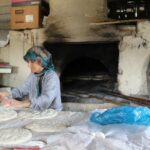Category: Mutual Aid in Bakur
Mutual Aid is a volunteer-led initiative / project where groups of people in a particular area, or from a particular community join together to support one another, meeting vital community needs without the help of state institutions or NGOs. It is, by definition, a horizontal mode of organising, in which all individuals are equally powerful. Mutual Aid, in simpler words, is co-operation for the common good.
Mutual Aid – in all of its forms and varieties – is a universal practice, rather than a catch-all term, or definition. It is an evolutionary factor as old as life on Earth.
The articles below are about Mutual Aid practices in North Kurdistan (Bakur / southeastern Turkey).
———————————————————
Read more about the history and current practices of Mutual Aid around the world today at our sister project: www.mutualaid.coop
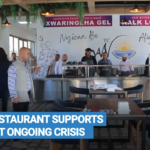
Van Municipality opens budget eatery to support residents
Van (Wan) Metropolitan Municipality has opened a new low-cost restaurant, Kent Lokantası, in İpekyolu (Rêya Armûşê) district's Beşyol Park. The initiative aims to support residents struggling with the ongoing economic crisis in Turkey.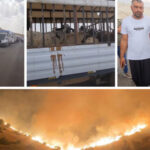
Shepherds give fire victims 350 sheep in an act of solidarity
Kurdish Shepherds started a solidarity campaign to give sheep to the villagers affected by the fire between Diyarbakır (Amed) and Mardin (Mêrdîn) in which 15 people lost their lives. They have already distributed 350 sheep and goats to the villagers.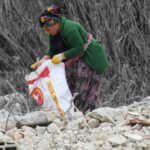
Post-earthquake challenges persist for women in affected regions of Turkey
As the first anniversary of Turkey's devastating February earthquakes approaches, women in the earthquake-stricken areas continue to face a spiral of violence and poverty, with calls for organisation to address these issues, report Mezopotamya Agency's Yüsra Batıhan and Şilan Çil.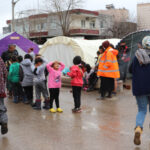
Neighborhood commissions established by earthquake survivors in Semsûr
The earthquake survivors in Semsûr have established neighborhood commissions to support and be in solidarity with each other. The aim of the commissions is to build a communal life.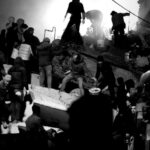
Earthquake in Turkey: the state versus the people
The HDP’s strength lies in its ability to mobilise and organise its large network of supporters and sympathisers and like-minded community organisations. As soon as they heard about the earthquake, the party dropped all other plans, set up a central coordination centre, and dispatched leading members to the affected area. Local election centres were transformed into coordination centres, while the youth organisation concentrated on rescue work. They put out calls for solidarity and for people with shelter and food to share with those without, and they helped create a framework to allow people’s natural solidarity to find direction.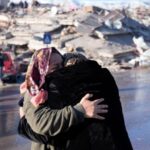
Statement by ecology movements in Turkey- demands for immediate action
Immediately after the February 6 earthquake, one of the biggest in the history of Turkey, a broad meeting of Ecology Organizations in Turkey published this statement.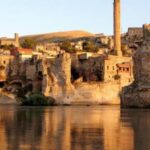
Ecology Discussions and Practices in the Kurdish Freedom Struggle
Ecology is one of the three pillars of the paradigm of Democratic Confederalism, the political-theoretical concept of the Kurdish Freedom Movement. Besides democracy and gender liberation, ecology has been mentioned explicitly as a dimension in this concept since 2005. However to date, ecology is less discussed and practiced than the two other pillars.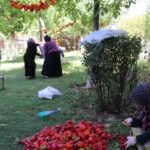
Collective work from women of Amed to make red pepper paste
Preparation for winter of women in Amed continues. The women have worked collectively to make red pepper and tomato paste for winter.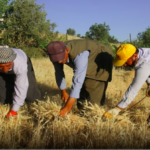
Kurdish farmers’ tradition of collective harvesting with sickles and song stands the test of time
Kurdish Farmers in Şırnak follow tradition and sing 'stran' in chorus and harvest in harmony.